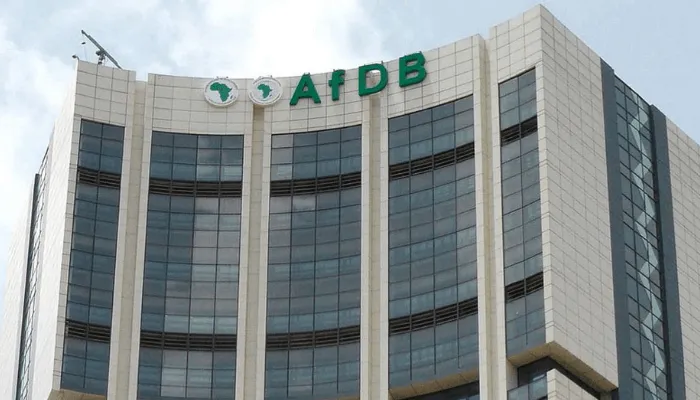In a decisive move aimed at bolstering the Nigerian economy and stabilizing its currency, the Central Bank of Nigeria (CBN) has injected $876 million into the foreign exchange (forex) market. This latest intervention is part of the apex bank’s broader strategy to enhance market liquidity, promote transparency, and ensure that all legitimate foreign exchange demands are met. The CBN’s ongoing efforts reflect a commitment to maintaining a stable forex market amid increasing economic pressures both domestically and globally.
Understanding the Context: The Nigerian Economy and Forex Challenges
Nigeria, Africa’s largest economy, has long grappled with significant challenges in its foreign exchange market. The volatility of the naira, driven by fluctuating oil prices, dwindling foreign reserves, and a persistent demand-supply mismatch in the forex market, has been a major concern for policymakers. The Nigerian economy is heavily reliant on oil exports, which constitute over 90% of its foreign exchange earnings. Consequently, any downturn in global oil prices has a direct impact on the country’s foreign exchange reserves and the stability of the naira.
Over the past few years, the CBN has implemented a series of measures to stabilize the forex market and support the naira. These measures have included periodic interventions in the forex market, adjustments to the official exchange rate, and the introduction of various forex windows to cater to different segments of the market. Despite these efforts, the naira has remained under pressure, with the currency depreciating significantly against the US dollar in both the official and parallel markets.
The $876 Million Injection: A Targeted Approach to Enhance Market Liquidity
The recent injection of $876 million into the forex market is a continuation of the CBN’s proactive approach to managing liquidity and stabilizing the naira. The funds were offered to fulfill bids submitted by customers during an auction held on Wednesday, August 7, 2024. This auction is part of the CBN’s broader strategy to ensure that the foreign exchange market operates efficiently and transparently, with adequate liquidity to meet the needs of all market participants.
One of the key components of the CBN’s strategy is the Retail Dutch Auction System (RDAS), which facilitates direct FX sales to end-users. The RDAS allows for a more transparent market by reducing information asymmetry and supporting price discovery. This system complements the two-way quote system that the CBN has deployed over the past few months to enhance liquidity in the interbank market. Through this system, over $305 million of foreign exchange has been sold to authorized dealers in the last three weeks, further reinforcing the CBN’s commitment to maintaining market stability.
Impact on the Forex Market and Broader Economic Implications
The CBN’s latest intervention is already yielding positive results, with signs of improvement in the forex market. The increased liquidity provided by the CBN has contributed to a sustained convergence of exchange rates across all segments of the market. This convergence is critical for reducing the volatility of the naira and ensuring that exchange rates reflect the true market value of the currency.
According to the CBN’s latest statement, net foreign exchange flows rose to $25.4 billion between January and June 2024, marking a 55% year-over-year increase. This growth has been driven by a rise in capital importation, which reached $6 billion in June 2024, and record inflows from diaspora remittances through formal channels. The foreign exchange market has also seen increased depth, with more robust and diversified sources of liquidity contributing to its overall stability.
The official market recorded a turnover of $43 billion in customer transactions by the end of July 2024, with CBN-supplied liquidity representing less than 5% of total market activities. This indicates that the market is becoming more self-sustaining, with a growing number of participants and increased confidence in the market’s ability to meet the needs of all legitimate forex users.
The Role of Diaspora Remittances and Capital Inflows
Diaspora remittances have played a significant role in supporting Nigeria’s foreign exchange market. With millions of Nigerians living and working abroad, remittances have become a vital source of foreign exchange, providing much-needed liquidity to the market. In recent years, the CBN has implemented policies to encourage the inflow of remittances through formal channels, including the introduction of the “Naira 4 Dollar” scheme, which offers incentives to remittance senders.
The impact of these policies has been substantial, with remittances reaching record levels in 2024. The inflows from the diaspora have helped to offset some of the pressures on the naira, providing a steady source of foreign exchange that has contributed to the stability of the market.
In addition to remittances, capital inflows have also been a crucial factor in enhancing market liquidity. Nigeria has seen a resurgence in capital importation, particularly in the form of foreign direct investment (FDI) and portfolio investments. The CBN’s efforts to improve the business environment, coupled with the government’s push for economic diversification, have attracted significant foreign investments into key sectors such as technology, agriculture, and manufacturing. These inflows have bolstered the country’s foreign exchange reserves and provided additional support to the naira.
Challenges and Risks: Navigating a Complex Economic Landscape
Despite the positive developments, the Nigerian economy continues to face significant challenges. The volatility of global oil prices remains a critical risk, as any sharp decline in prices could lead to a reduction in foreign exchange earnings and renewed pressure on the naira. Additionally, the ongoing economic and political uncertainties in the global environment, including the impact of the Russia-Ukraine conflict and the tightening of monetary policies by major central banks, pose further risks to Nigeria’s economic stability.
Domestically, the economy is still grappling with high inflation, unemployment, and a growing debt burden. Inflation, which has been driven by rising food and energy prices, remains stubbornly high, eroding the purchasing power of consumers and increasing the cost of living. The CBN has been working to address these issues through a combination of monetary policy measures and interventions in critical sectors of the economy. However, the road to recovery is likely to be long and challenging.
The Way Forward: CBN’s Commitment to Economic Stability
The Central Bank of Nigeria remains steadfast in its commitment to fostering a transparent, market-driven foreign exchange market. The CBN’s ongoing interventions are aimed at ensuring that the forex market operates efficiently, with sufficient liquidity to meet the needs of all legitimate participants. By maintaining a proactive approach to managing liquidity and stabilizing the naira, the CBN is playing a crucial role in supporting Nigeria’s economic recovery and growth.
Looking ahead, the CBN is expected to continue its efforts to enhance market transparency, improve liquidity, and support the convergence of exchange rates. The apex bank’s policy objectives are aligned with the broader goals of the Nigerian government, which include promoting economic diversification, reducing dependency on oil exports, and creating a more sustainable and resilient economy.
Conclusion
The injection of $876 million into the forex market by the Central Bank of Nigeria is a strategic move aimed at enhancing liquidity, stabilizing the naira, and supporting economic growth. This intervention reflects the CBN’s ongoing commitment to maintaining a stable and transparent foreign exchange market, even in the face of significant economic challenges. With the forex market showing signs of improvement and increased confidence among market participants, the CBN’s efforts are beginning to bear fruit. However, the road ahead remains complex, and the CBN will need to remain vigilant in navigating the risks and challenges that lie ahead. As Nigeria continues its journey towards economic recovery, the role of the CBN will be pivotal in shaping the country’s future.
Photyo source: Google
By: Montel Kamau
Serrari Financial Analyst
9th August, 2024
Article, Financial and News Disclaimer
The Value of a Financial Advisor
While this article offers valuable insights, it is essential to recognize that personal finance can be highly complex and unique to each individual. A financial advisor provides professional expertise and personalized guidance to help you make well-informed decisions tailored to your specific circumstances and goals.
Beyond offering knowledge, a financial advisor serves as a trusted partner to help you stay disciplined, avoid common pitfalls, and remain focused on your long-term objectives. Their perspective and experience can complement your own efforts, enhancing your financial well-being and ensuring a more confident approach to managing your finances.
Disclaimer: This article is for informational purposes only and does not constitute financial advice. Readers are encouraged to consult a licensed financial advisor to obtain guidance specific to their financial situation.
Article and News Disclaimer
The information provided on www.serrarigroup.com is for general informational purposes only. While we strive to keep the information up to date and accurate, we make no representations or warranties of any kind, express or implied, about the completeness, accuracy, reliability, suitability, or availability with respect to the website or the information, products, services, or related graphics contained on the website for any purpose. Any reliance you place on such information is therefore strictly at your own risk.
www.serrarigroup.com is not responsible for any errors or omissions, or for the results obtained from the use of this information. All information on the website is provided on an as-is basis, with no guarantee of completeness, accuracy, timeliness, or of the results obtained from the use of this information, and without warranty of any kind, express or implied, including but not limited to warranties of performance, merchantability, and fitness for a particular purpose.
In no event will www.serrarigroup.com be liable to you or anyone else for any decision made or action taken in reliance on the information provided on the website or for any consequential, special, or similar damages, even if advised of the possibility of such damages.
The articles, news, and information presented on www.serrarigroup.com reflect the opinions of the respective authors and contributors and do not necessarily represent the views of the website or its management. Any views or opinions expressed are solely those of the individual authors and do not represent the website's views or opinions as a whole.
The content on www.serrarigroup.com may include links to external websites, which are provided for convenience and informational purposes only. We have no control over the nature, content, and availability of those sites. The inclusion of any links does not necessarily imply a recommendation or endorsement of the views expressed within them.
Every effort is made to keep the website up and running smoothly. However, www.serrarigroup.com takes no responsibility for, and will not be liable for, the website being temporarily unavailable due to technical issues beyond our control.
Please note that laws, regulations, and information can change rapidly, and we advise you to conduct further research and seek professional advice when necessary.
By using www.serrarigroup.com, you agree to this disclaimer and its terms. If you do not agree with this disclaimer, please do not use the website.
www.serrarigroup.com, reserves the right to update, modify, or remove any part of this disclaimer without prior notice. It is your responsibility to review this disclaimer periodically for changes.
Serrari Group 2025





